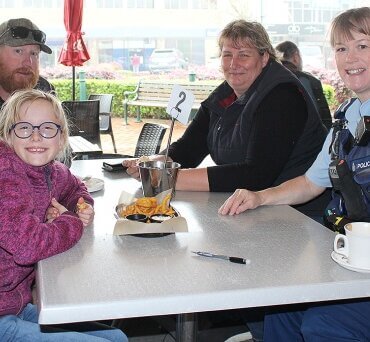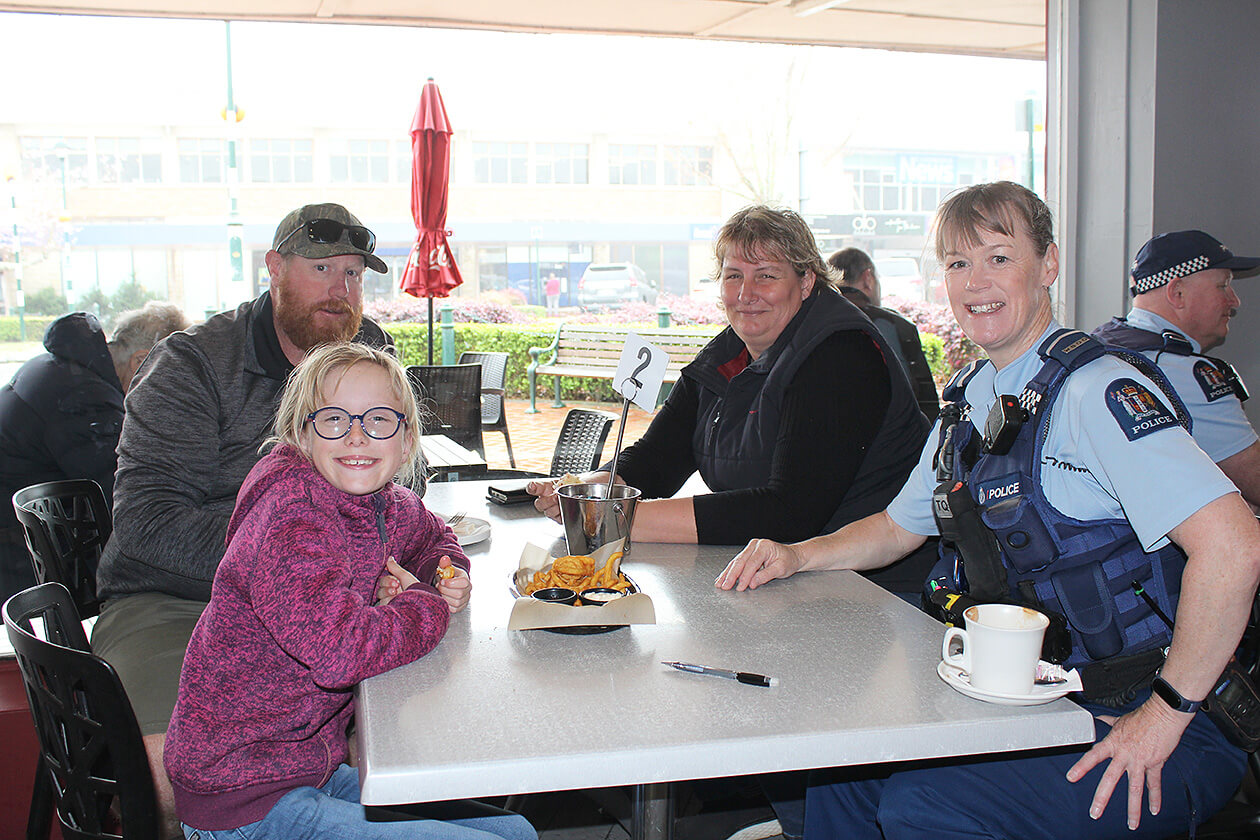
Coffee with a cop

Nine-year-old Mackenzie Tod was front, and almost centre, when Deb Hann shared a coffee and a chat with Hautapu residents Andrew Tod and Kushla Twyford. Photo: Roy Pilott.
I hope everyone is having a good school holiday time. When you read this, I like many others will be off duty, taking time out for some quality time with my family this week.
Firstly, in good news this week, I would like to thank people who find property abandoned or lost and report it through the right channels. A lady visiting Cambridge recently from elsewhere in the Waikato, accidentally left her wallet on the roof of the car and drove away, hearing it slide off the roof sometime later. It was found in the middle of the main road by a member of the public and returned to her, intact, the next day. I would also like to remind businesses, that any found property handed in by customers should be taken to the Police station as soon as possible.
Please do not hold on to found property for a lengthy period of time and bring it down in consolidated amounts. We regularly get reports of lost property at the station and the likelihood of returning it is greatly reduced if it isn’t handed in when found. In addition, with wallets, the process of blocking or cancelling and reissuing cards can be time consuming and frustrating.
Secondly, a topic that regularly comes up in conversation with the community is how and when to call police. It is a common enough query, that I wanted to clarify it again as often the query comes after something has happened and police weren’t in fact called.
If something is happening at the time and you feel a police presence is needed to deal with it, call 111. Examples could be a shoplifter running away, a road rage assault, someone being threatened or intimidated, a suspicious person walking around your neighbour’s property or someone behaving in a mentally disordered manner in public. Please do not second guess yourself – particularly where the situation involves someone being victimised or a vulnerable member of our community. Don’t rely on others to make the call either, for if all think that, no one calls. If we get multiple calls to the same incident, we get increased information to provide details such as vehicle and offender descriptions and events that occurred in the leadup to the incident.
Police attendance means we can identify any criminal offending at the time, get the most and freshest evidence and prevent further offending or other escalation. At the very least, we can gain information about people and places and patterns of offending which help build up a picture of what is happening in town.








